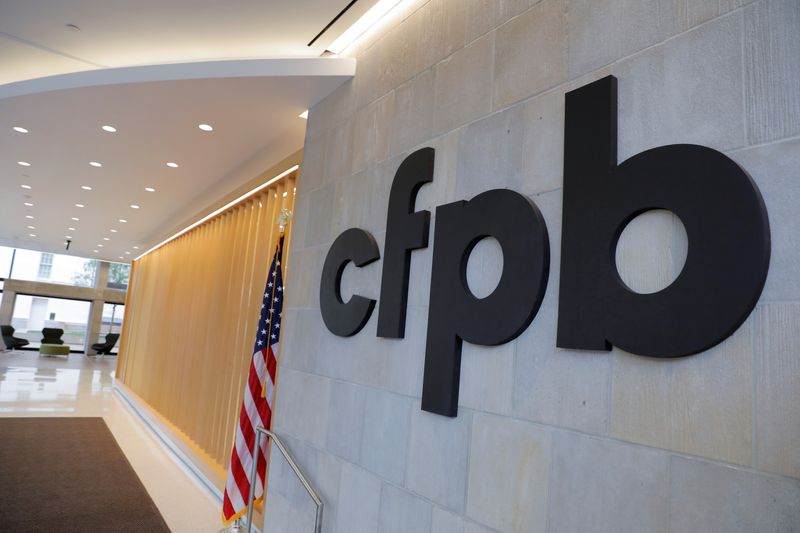By Jody Godoy
(Reuters) -Several investment trusts that hold student loans must follow federal consumer protection law because they serviced and collected on the loans, a U.S. appeals court ruled on Tuesday in a win for the consumer finance watchdog agency.
The ruling by the 3rd U.S. Circuit Court of Appeals in Philadelphia allows the Consumer Financial Protection Bureau to continue its lawsuit against the trusts, which were formed to purchase 800,000 private student loans from the original lenders and collect on them for investors. The agency accused the trusts of using lawsuits in deceptive or unfair ways to collect from borrowers.
A spokesperson for the CFPB declined to comment. An attorney representing the trusts did not immediately respond to a request for comment on Tuesday.
The CFPB sued the 15 trusts in 2017, saying they had relied on false or inadequate documentation to file thousands of lawsuits against borrowers, or sued to collect debt after deadlines to do so had elapsed. The agency said the trusts violated the Consumer Financial Protection Act (CFPA), which bars deceptive and unfair practices.
A federal judge in Wilmington, Delaware, rejected the trusts' motion to dismiss the lawsuit in 2021.
The trusts argued on appeal that they should not be considered "covered persons" under the CFPA, as they were merely passive investment vehicles that do not control the loan servicers who filed the lawsuits.
During arguments in the case in May 2023, CFPB attorney Kevin Friedl said that releasing companies from liability when they outsource functions to others "would open obvious avenues for evasion" of the consumer protection statutes.

The case drew interest from industry groups, including the Securities Industry and Financial Markets Association, which argued in court papers that subjecting trusts to consumer finance law would "upset the expectations of securitization investors" and ultimately restrict consumer credit.
The CFPB received support from consumer groups and 22 states. The states said investment trusts often purchase debt deemed uncollectible because it is old or undocumented, and are "more likely than the original creditors to resort to unlawful tactics."
